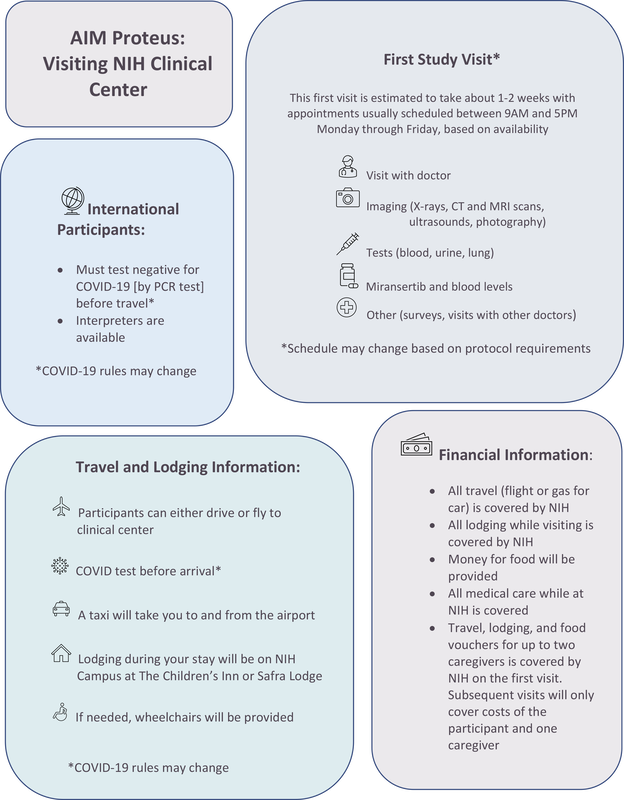AIMProteus
AKT Inhibitor Miransertib on Proteus Syndrome - Targeted therapy at NIH is now accepting participant
Questions about the NIH AIMProteus trial email here or call.
AKT Inhibitor Miransertib on Proteus Syndrome - Targeted therapy at NIH is now accepting participant
Questions about the NIH AIMProteus trial email here or call.





